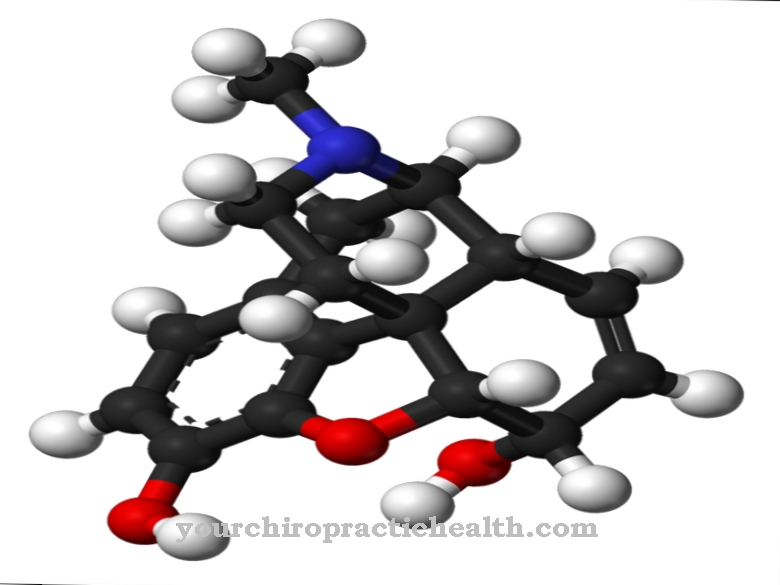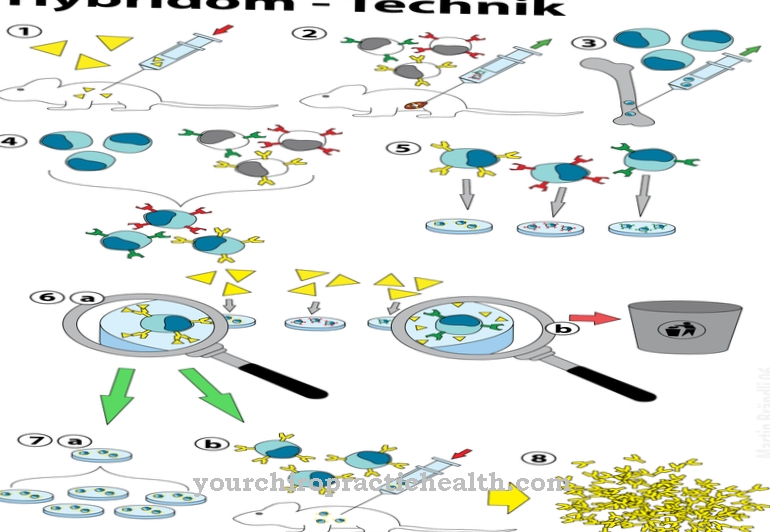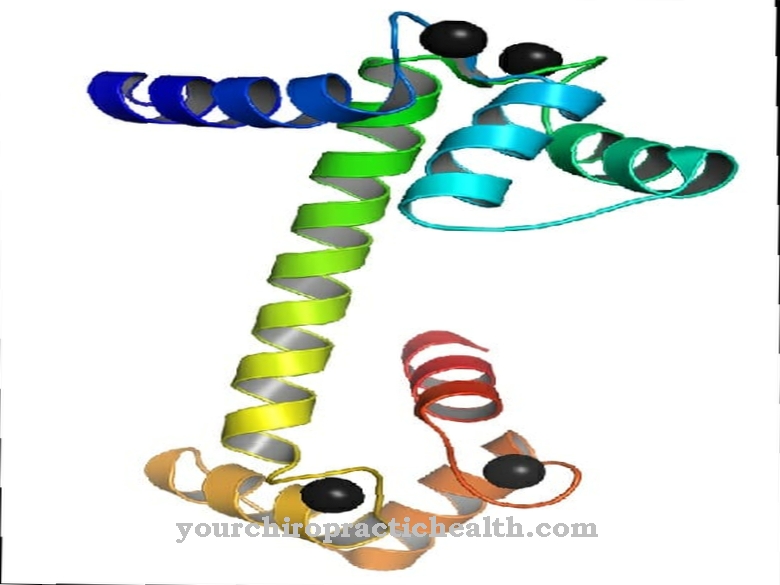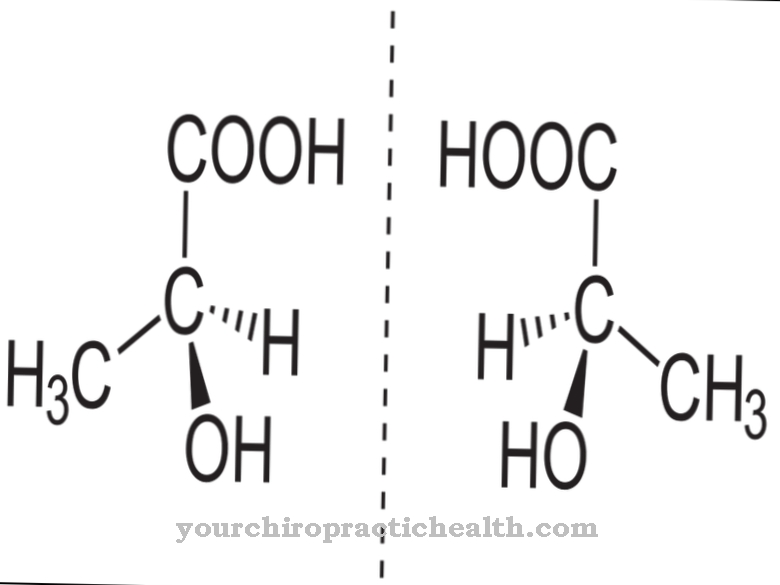sulfur is an inorganic chemical element that is in a solid state at room temperature. Elemental sulfur is yellow and as a molecule it is contained in numerous compounds. Sulfur also plays a role in medicine for the treatment of chronic ailments; it can be used both externally and internally.
What is sulfur
Sulfur is also by its Latin name Sulfur known, a so-called non-metal with a lemon-yellow appearance and ubiquitous distribution. Elemental sulfur is not as common in nature as sulfur-containing compounds.
Due to its reactivity, sulfur quickly forms compounds with other chemical elements such as oxygen or carbon. The two best-known and most common sulfur compounds are sulfur dioxide and hydrogen sulfide, typically recognizable by their musty, rotten odor.
Sulfur is an essential element for all living beings, i.e. for plants, animals, humans and bacteria.Elemental sulfur cannot be used by the human organism, only inorganic and organic compounds with the sulfur atom. Many microorganisms operate what is known as anaerobic energy generation, which can only take place with the help of sulfur as a catalyst. In the organism of complex living beings, including humans, sulfur is an indispensable component of numerous enzymes and amino acids. The development of life through evolution would be inconceivable without sulfur.
Function, effect & tasks
Elemental sulfur is a crystalline substance with a powdery consistency that can be found in many rocks on the earth's surface. Since the body is unable to synthesize sulfur itself, the chemical element has to be taken in with food.
Sulfur-containing compounds are, however, present in sufficient quantities in many staple foods, so that, at least in the western industrialized nations, there are hardly any deficiency symptoms. The important tasks and the effects of sulfur result from its function as a central component or secondary component of enzyme complexes or amino acids. Many metabolic processes could not function at all without sulfur as a molecule. If sulfur is taken as a dietary supplement, the internal effects are still unknown today.
To remedy alleged sulfur deficiency, the intake of organic sulfur in the form of methylsulfonylmethane, better known under the abbreviation MSM, is recommended. While established medical science does not assume that there is even a sulfur deficiency in a normal diet, proponents of the sulfur deficiency theory assume that too little sulfur can lead to serious health disorders and impairments, which could be remedied by the intake of MSM.
The possibility of overdose, side effects, or toxic effects is unknown with sulfur. In the pharmaceutical and chemical industries, sulfur is used, among other things, in the production of artificial fertilizers, insecticides, dyes and sulfuric acid. Sulfur is also found in certain explosives and black powder.
Education, occurrence, properties & optimal values
When used externally, sulfur compounds stimulate wound healing, but also dry out the skin slightly. Sulfur also has a slightly antiseptic and anti-inflammatory effect, which can have a positive effect on inflammatory rheumatic diseases.
For acne and skin inflammation, sulfur is used as an additive in creams and ointments. Sulfur is often a component of bath additives against rheumatism. An internal application as MSM should strengthen the general immune system, promote blood circulation and stimulate the circulation and metabolism. Patients with chronic or inflammatory diseases of the joints and the musculoskeletal system in particular can apparently benefit from treatment with sulfur-containing compounds.
The determination of elemental sulfur in the blood is still not common today. Whether or not there is a sulfur deficiency can only be determined indirectly via the detection of sulfur-containing amino acids. The most important, physiologically relevant, sulfur-containing amino acid is homocysteine. It is an intermediate product of the cell metabolism with which a good prognostic statement about the vascular health can be made. The sulfur-containing amino acid homocysteine also influences the risk of arteriosclerosis, coronary heart disease or cholesterol metabolism disorders. The normal value for homocysteine in whole blood in adults is 6-12 µmol / liter.
Diseases & Disorders
If the skin is burned, oozing or severely inflamed, no preparations containing sulfur may be used. Warm water baths with sulfur additives must not be used by patients suffering from high blood pressure, febrile infections or heart failure.
The safety of use in pregnant women and unborn babies has not yet been conclusively clarified with sulfur. Therefore, it should only be used during breastfeeding after consultation with the treating doctor. Sulfur-containing compounds should also not be used in small children and infants, as there is also a lack of empirical values here. The internal use of sulfur can lead to slight gastrointestinal disturbances as side effects; with external use, isolated hypersensitivity reactions in the form of reddened skin, swelling or dryness of the skin have been reported.
However, there are no known interactions with other drugs or medicinal preparations. In addition to various physical symptoms, mental illness symptoms such as fear or depression in connection with a sulfur deficiency should also occur. However, these are empirical reports that cannot be transferred to a collective of the general population.
An application of organic sulfur to relieve these symptoms should therefore not be done without consulting a specialist. An interaction of organic sulfur compounds such as MSM with psychotropic drugs is excluded. Sulfur is also said to have the potential to lessen allergic symptoms.













.jpg)

.jpg)
.jpg)











.jpg)